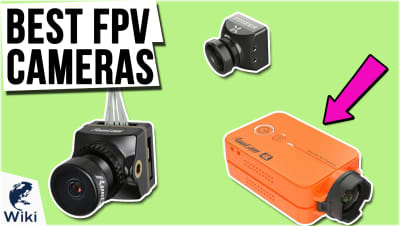5 Knowledgeable Creators Of Healthcare Media
Although everyone needs quality healthcare, few know much about the industry providing it. The best sources for this information are often the doctors and nurses themselves. In no particular order, here are some medical experts producing books, blogs, podcasts, and other media that illuminate important healthcare issues.
First up at #1 is Brittney Wilson, an author, blogger, and international keynote speaker in the healthcare technology community. In 2013 she released The Nerdy Nurse's Guide to Technology, which provides the tools nurses need to improve their practices, further their careers, and solidify themselves as assets to their employers. Written in a humorous and digestible way, it won the American Journal of Nursing's Book of the Year Award in 2014.
Wilson got started in 2010 when she created her blog, The Nerdy Nurse. The website is filled with advice for nurses and other healthcare professionals, touching on subjects including common issues in the field, new and emerging healthcare technologies, and guides to different medical specializations.
Next up at #2 is Suzanne Gordon. This award-winning journalist and writer is the author or co-author of over ten books, and is co-editor of several more. Among her titles are Beyond the Checklist, which examines how healthcare providers can reduce the financial and human toll of medical errors, and Wounds of War, about the treatment of US military veterans. Gordon's writing has also been featured in the New York Times, the Los Angeles Times, the Boston Globe, and many other publications.
As of 2020, Gordon is an assistant adjunct professor at the UCSF School of Nursing, and an affiliated scholar with the University of Toronto Faculty of Medicine’s Wilson Centre. She is also the Senior Policy Fellow at the Veterans’ Health Care Policy Institute. With Lisa Hayes, she has written a play about patient safety and teamwork entitled Bedside Manners.
At #3 is Nacole Riccaboni, who uses her internet presence to support and empower prospective, new, and experienced nurses. She runs a podcast under the name Nurse Nacole, in which she answers listeners' questions during her commute to and from work, and provides tips on everything from pediatric to maternal neonatal nursing.
On her YouTube channel, Riccaboni offers practical advice on the many obstacles nurses or nursing students may encounter throughout their careers. She has also written a variety of articles to help nurses find the right school, apply to their first job, and take care of themselves outside of work.
Up next at #4 is Dr. Zubin Damania, a UCSF- and Stanford-trained internist who went on to found Turntable Health, an innovative primary care clinic. After experiencing the dysfunctional healthcare system firsthand, he started producing videos under his pseudonym, ZDoggMD. These videos, which feature biting, satirical medical humor, have since gone viral and helped launch a grassroots movement dedicated to improving healthcare for everyone.
Dr. Damania's main focus is on promoting a movement known as Health 3.0, which is aimed at fixing America's broken healthcare system. The movement seeks to give clinicians the time, space, and tools necessary to understand each of their patients as unique human beings, rather than as just a collection of symptoms.
Last up at #5 is Dr. Jessica Zitter. A Harvard- and UCSF-trained physician, she is an advocate for reforming end-of-life medical care in America. After spending two decades in intensive care units across the country, Dr. Zitter was dismayed to see how mechanization and protocol were prioritized over the comfort of dying patients, and wished to take action.
Determined to bring the conversation about death and dying into mainstream medicine, Dr. Zitter contributes regularly to the New York Times. Her articles have also appeared in The Atlantic, Time Magazine, and many other publications. She is featured in the Oscar-nominated 2017 documentary short Extremis, and is the author of the book Extreme Measures: Finding a Better Path to the End of Life.




